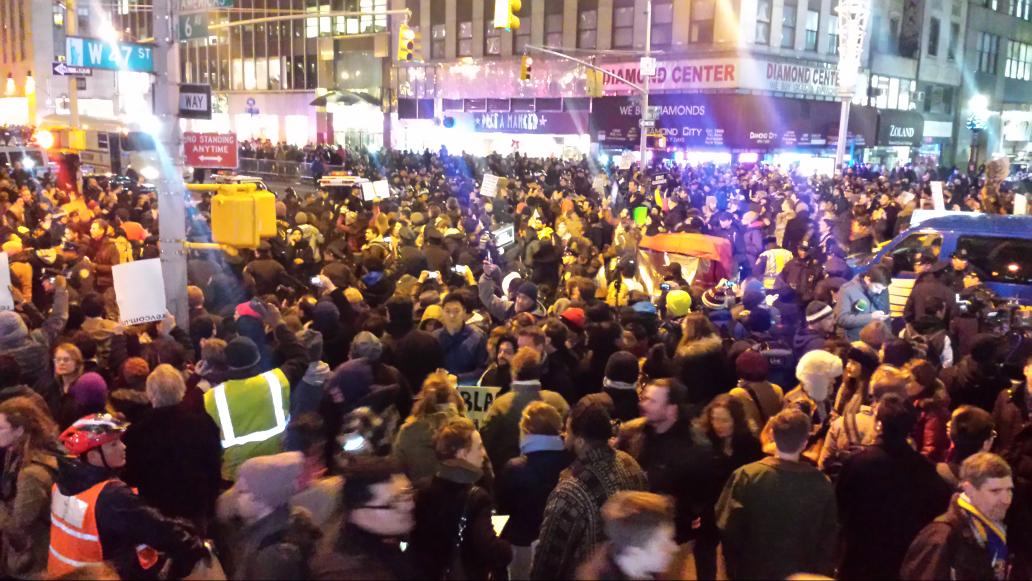While there will be welcome debate about these and other points of agreement, there is a measure of consonance across all political dispositions that some of these conditions need to be addressed. And immediately:
• The use of excessive force by police: This is something which may be addressed by the insistence that law enforcement be required to wear body cameras at all times, a measure which New York City is beginning to implement. While it did not prevent undue force in this case or lead to an indictment when that force was applied, it will nevertheless impose some restraint on officers encountering a similar situations in the future.
• The state-level reformation of the grand jury process: The fact that a grand jury could not find probable cause to go to trial when an illegal hold resulted in a homicide, but could find sufficient evidence to indict the person who filmed this incident (on a gun charge) shouldn’t sit well with anyone. The fact that evidence presented in a grand jury proceeding is not made available to the public unless there is sufficient outcry is a subjective and problematic determination.
• Unrealistic evidentiary burdens: While police should be and are subject to levels of protection for doing their jobs that are not extended to civilians, there are limits. It is possible that the bar for criminality is set a tad too high in some cases, particularly when the circumstantial evidence is as damning as it is in this case.
• Contraband laws and the criminalization of the nonviolent: There is no reason why a person should be subject to arrest for selling loose cigarettes when that same person would only be subject to a ticket for carrying up to two ounces of marijuana. No law enforcement officer can decline to perform his or her job, which was in this case to execute an arrest on a nonviolent offender that went horribly wrong. But should police have to be put in this position?

